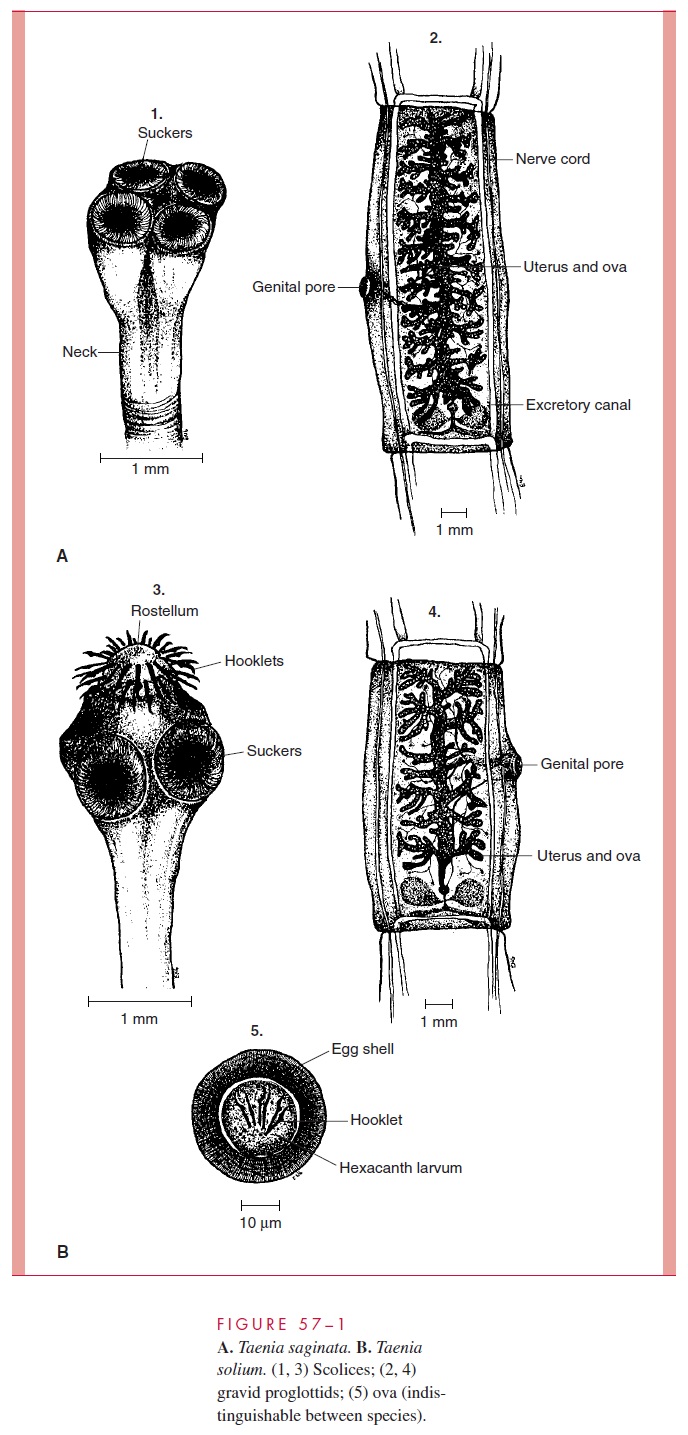Chapter: Medical Microbiology: An Introduction to Infectious Diseases: Cestodes
Taenia solium : Parasitology
PORK TAPEWORM
Taenia solium : PARASITOLOGY
Like the beef tapeworm, which it closely resembles, T. solium inhabits the human je-junum, where it may survive for decades. It can be distinguished from its close relative only by careful scrutiny of the scolex and proglottids; T. solium possesses a rostellum armed with a double row of hooklets (Fig 57 – 1B3). The strobila is generally smaller than that of T. saginata, seldom exceeding 5μm in length or containing more than 1000 proglottids. Gravid segments measure 6 by 12 mm and thus appear less elongated than those of the bovine parasite (Fig 57 – 1B4). Typically, the uterus has only eight to twelve lateral branches. Although the eggs appear morphologically identical to those of T. sagi-nata, they are infective only to swine and, perhaps reflecting a genetic proximity wewould prefer to overlook, humans. Both pigs and people become intermediate hosts when they ingest food contaminated with viable eggs. Some authorities have suggested that hu-mans may be autoinfected when gravid proglottids are carried backward into the stomach during the act of vomiting, initiating the release of the contained eggs. It seems more likely that autoinfection results from the transport of the eggs from the perianal area to the mouth on contaminated fingers.

Regardless of the route, an egg reaching the stomach of an appropriate intermediate host hatches, releasing the hexacanth embryo. The embryo penetrates the intestinal wall and may be carried by the lymphohematogenous system to any of the tissues of the body. Here it develops into a 1 cm, white, opalescent cysticercus over 3 to 4 months. The cys-ticercus may remain viable for up to 5 years, eventually infecting humans when they in-gest undercooked and “measly” flesh. The scolex everts, attaches itself to the mucosa, and develops into a new adult worm, thereby completing the cycle.
Related Topics